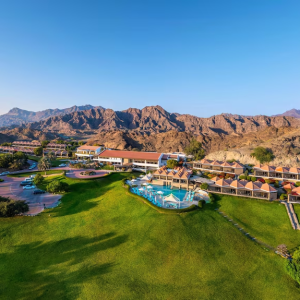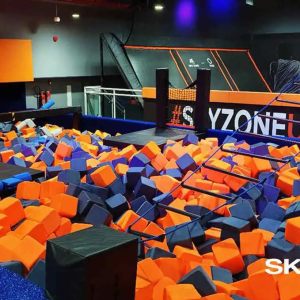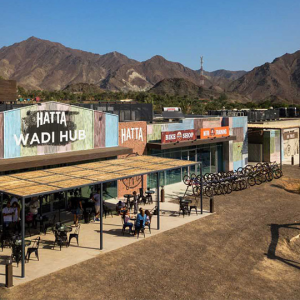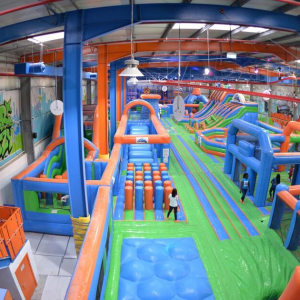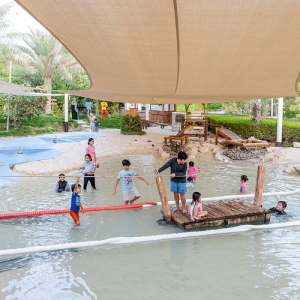Dubai, known for its towering skyscrapers and state-of-the-art infrastructure, experienced unexpected tremors today, sending shockwaves through the city and leaving residents in a state of anxiety. While the UAE is not typically prone to seismic activity, the tremors were felt across various parts of Dubai, raising concerns about potential aftershocks and structural safety.
The Earthquake Event
Reports from the National Center of Meteorology (NCM) confirmed that a mild earthquake occurred in the region, with its epicenter located outside the UAE’s borders. The tremors, measured at a magnitude of approximately 4.6 on the Richter scale, originated from a seismic event in southern Iran, a known earthquake-prone region. Despite the moderate intensity, the vibrations were strong enough to be felt in several high-rise buildings in Dubai and other emirates.
Eyewitnesses described the event as a sudden jolt followed by a mild shaking sensation that lasted for a few seconds. Office workers in downtown Dubai, particularly in areas like Business Bay, DIFC, and JLT, reported feeling their buildings sway, prompting brief evacuations in some cases. Social media platforms were quickly flooded with messages from residents sharing their experiences, with some questioning whether it was indeed an earthquake or simply a strong gust of wind shaking the city’s skyscrapers.

Authorities Respond Swiftly
Authorities in Dubai were quick to respond, reassuring the public that there was no immediate danger. The Dubai Municipality and the UAE’s National Emergency Crisis and Disaster Management Authority (NCEMA) released statements confirming that no significant damage had been reported. Building management teams were instructed to conduct structural assessments to ensure safety, particularly in high-rise residential and commercial properties.
“The tremors felt in Dubai today were a result of seismic activity in the southern Iranian region. There is no cause for alarm, and all infrastructure remains intact,” said an official from the Dubai Municipality’s emergency response unit.

Seismologists noted that while the UAE is not located on any major fault lines, occasional tremors can be felt due to seismic activity in neighboring regions such as Iran, Pakistan, and the Gulf of Oman. The country has a robust infrastructure designed to withstand mild seismic events, making it highly unlikely for earthquakes of this magnitude to cause any significant damage.
Impact on Residents and Businesses
Despite the mild nature of the earthquake, many residents were momentarily unsettled, especially those living and working in high-rise buildings. “I was on the 40th floor of my office building when I suddenly felt my chair move slightly. It wasn’t extreme, but it was enough to make me uneasy,” said a financial analyst working in DIFC.
Some businesses temporarily halted operations to ensure employee safety, while others carried on as normal after confirming there was no structural damage. Malls, metro stations, and hotels remained operational, though some guests in luxury hotels, particularly along Sheikh Zayed Road, reported feeling the vibrations.
Understanding Dubai’s Seismic Preparedness
Dubai has taken proactive measures to ensure that its infrastructure can withstand minor seismic events. The UAE’s building codes incorporate earthquake-resistant designs, particularly for high-rise towers. Engineers and city planners continually assess and update these codes in accordance with global safety standards.
The Dubai Municipality’s Seismic Network, which closely monitors tremor activity in the region, has been operational since 2006. It plays a crucial role in detecting seismic activity early and alerting relevant authorities. The network consists of advanced monitoring stations strategically placed across the emirates to provide real-time data on seismic movements.
“Dubai’s buildings are constructed to endure mild earthquakes. The city’s skyscrapers, including the Burj Khalifa, have been designed with advanced engineering techniques to handle structural stresses caused by seismic activity,” said a leading structural engineer in the UAE.
Could There Be Aftershocks?
Seismologists indicate that aftershocks following such tremors are rare in the UAE. However, given that the tremor originated in a seismically active region, there remains a possibility of minor aftershocks in the coming hours. Residents have been advised to stay alert but not to panic.
“Earthquakes of this magnitude are generally not followed by major aftershocks. However, we recommend that residents in high-rise buildings take necessary precautions and report any unusual structural movements to authorities,” stated a spokesperson from the NCM.
Social Media Reactions
The tremors sparked widespread discussion on social media, with hashtags like #DubaiEarthquake and #TremorsInUAE trending within minutes. Residents shared their experiences, with some making light of the situation and others expressing genuine concern.
“Felt my chair move in JLT! Was it just me, or did we just have an earthquake?” tweeted one resident.
“First time experiencing an earthquake in Dubai! It was a mild one, but still nerve-wracking,” another user posted on Instagram.
Despite the concerns, many praised Dubai’s infrastructure and quick response to the incident. “Good to know that Dubai is well-prepared for these situations. The response from authorities was reassuring,” one LinkedIn user commented.
Precautionary Measures for Residents
Authorities have advised residents to follow basic earthquake safety measures in case of future tremors:
- If indoors, remain calm and take cover under a sturdy table or desk.
- Avoid using elevators and opt for stairs if evacuation is necessary.
- Stay away from windows, mirrors, and heavy furniture that could topple over.
- If outside, move away from tall buildings and utility poles.
- Keep emergency numbers handy and follow official updates from authorities.
A Reminder of Nature’s Unpredictability
While today’s earthquake did not cause any damage, it served as a reminder of the unpredictability of natural events. Dubai continues to be a model city for safety and preparedness, and its robust infrastructure ensures that even minor seismic events can be handled with minimal disruption.
Residents are encouraged to stay informed and prepared, but above all, to remain calm in such situations. The tremors may have been a rare occurrence, but Dubai’s commitment to safety remains unwavering. As the city moves forward, continuous advancements in engineering and emergency response systems will ensure that Dubai remains one of the safest cities in the world, no matter what nature throws its way.
Do follow Uae stories for more Updates
New UAE Dirham Symbol: When Will Digital Currency Roll Out? Will Fresh Banknotes Be Issued?



